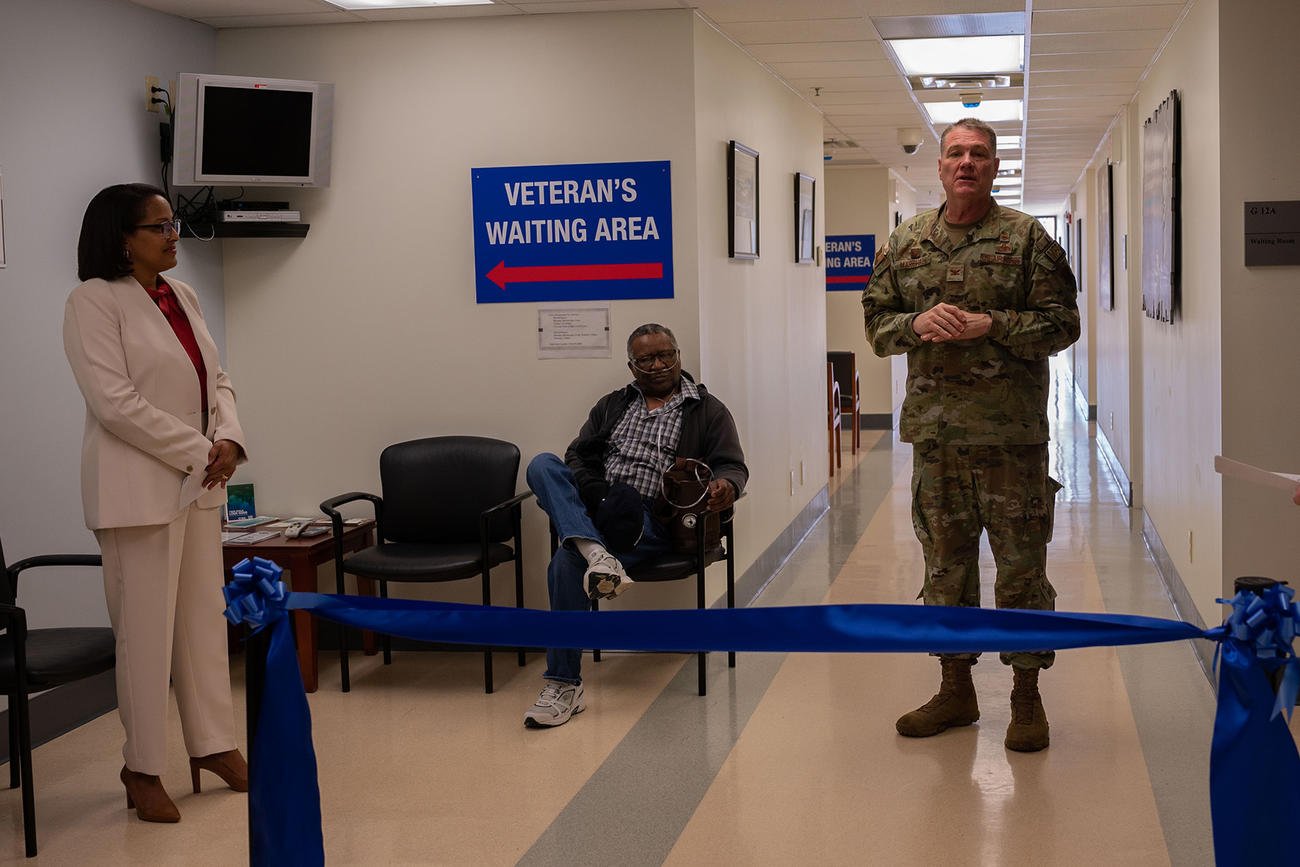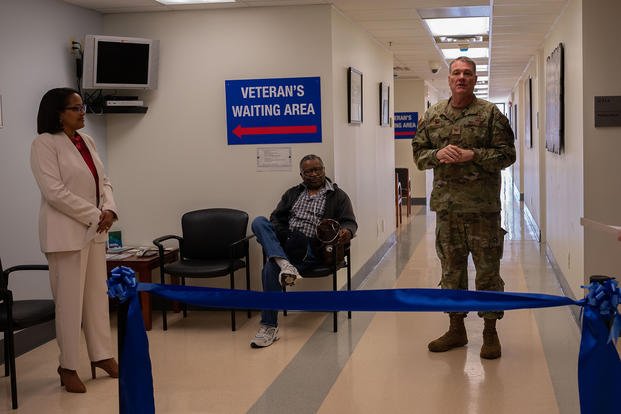

The Defense Department and Department of Veterans Affairs have taken steps to make it easier for veterans and their designated caregivers to access military facilities for medical appointments, shopping and more.
The departments announced Friday that veterans and eligible caregivers can use a REAL ID compliant driver’s license or state identification card to enroll for installation access at a base visitor’s center.
Previously, veterans were required to have a Veteran Health Identification Card or stop each time they visited an installation at a visitors center to get on base. Caregivers were required to have a VA service-connected disability letter, a health eligibility form or another letter demonstrating caregiver patronage.
Read Next: Marine Corps F-35C Was Used in Combat for First Time to Strike Houthis, Military Confirms
“DoD installations provide numerous benefits and critical services to our nation’s veterans, including health care,” VA Deputy Secretary Tanya Bradsher said in a statement. “We are grateful for our partnership with DoD and the ability to implement these updates to make military installation access easier for veterans and their caregivers.”
The fiscal 2019 National Defense Authorization Act allowed all service-connected disabled veterans, Purple Heart recipients and former prisoners of war, as well as caregivers of veterans enrolled in the Comprehensive Assistance for Family Caregivers program, to shop at military commissaries and military exchanges.
The law also allowed those veterans to use income generating recreational amenities such as golf courses, theaters, campgrounds, bowling alleys and more.
The move added roughly 4.1 million potential customers to the Defense Department grocery and resale store system, which includes the Army and Air Force Exchange System, the Navy Exchange and the Marine Corps Exchange.
The VA also has signed agreements with the DoD to use space at some on-base medical facilities in Kentucky, Florida, Alabama, Virginia and elsewhere with intentions to grow the partnerships at more than a dozen sites.
With veterans seeking medical care on base, it became essential for them to have easier access, according to Ashish Vazirani, acting as undersecretary of defense for personnel and readiness.
“Our veterans and their caregivers deserve a smooth experience in accessing installations,” Vazirani said in a statement.
Shortly after the new benefits went into effect on Jan. 1, 2020, veterans began encountering issues accessing bases for reasons that included a lack of understanding about the requirements, not possessing a Veterans Health ID and the COVID-19 pandemic, which shuttered many facilities to all but essential personnel.
Under the new initiative, veterans and caregivers must first visit an installation’s visitors center and enroll by providing a valid Veterans Health Identification Card or Real ID, undergo a criminal record and terrorism background check and have their eligibility for benefits verified, by either providing proof that they are a service-connected or otherwise eligible vet or proof that they have a medical appointment.
Then, every time they go on base, they can present the ID they used to enroll to be verified at the gate.
According to the Defense Department, enrollment will likely be valid for 1-3 years or one year after the previous visit. Should their ID expire, they would have to reenroll with their new ID card.
The access benefit will only apply to getting on base. At the commissary or exchange, they will still have to provide their hard-copy eligibility forms — a VA-issued caregiver patronage letter, VA-issued service-connected disability letter, or a VA Health Eligibility Center Form H623A — to show eligibility.
“It matters where you shop. Team Exchange looks forward to serving those who served with tax-free shopping and military-exclusive pricing that can only be found at their exchange,” Army and Air Force Exchange Service Director and CEO Tom Shull said in a statement.
Related: Pentagon Abandons Its Support for Merging the Commissary and Exchange Systems
